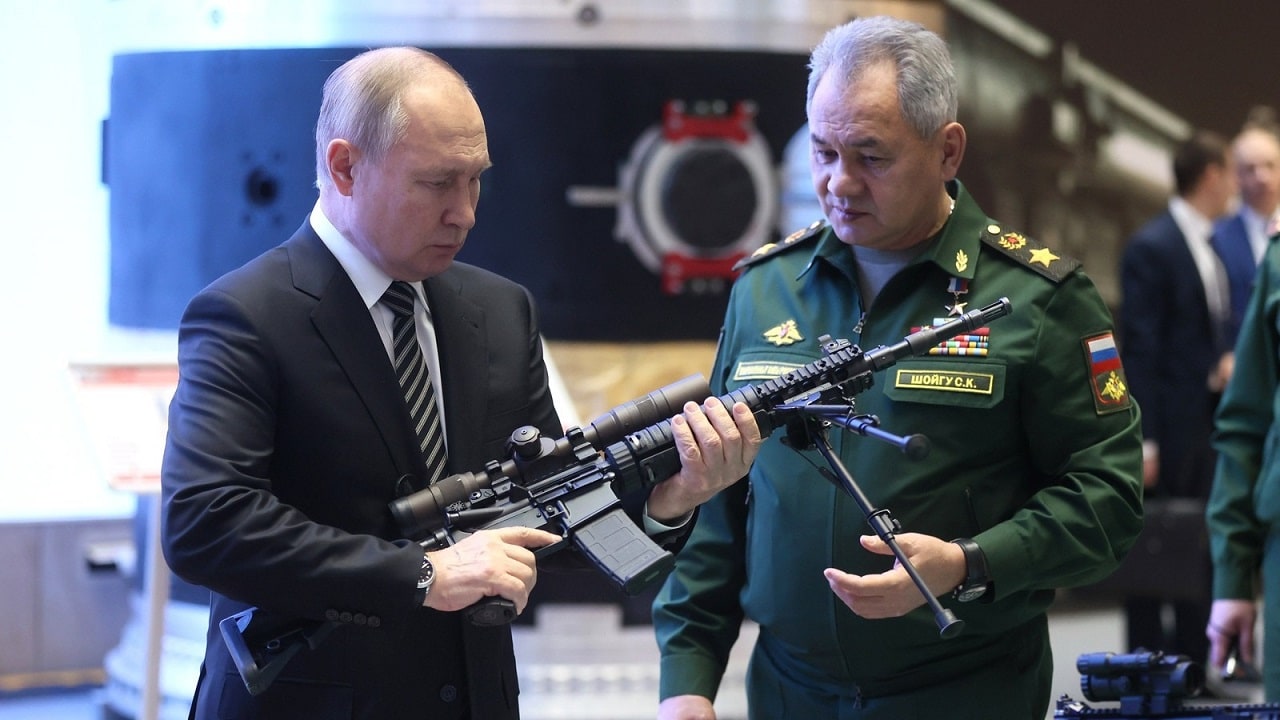War in Ukraine Over in Two Weeks? After peace talks continued on Tuesday between Ukrainian and Russian government officials, Ukrainian President Volodymyr Zelenskyy said that the positions of both countries during the discussions are starting to sound more realistic.
In a video address released on Wednesday, Zelenskyy said that the meetings will continue and that he is informed that the positions established during negotiations so far “already sound more realistic.”
“But time is still needed for the decisions to be in the interests of Ukraine,” he added.
A senior official from the Ukrainian government also said on Tuesday that while the discussions were difficult, there is “certainly room for compromise.”
NATO Membership Off the Cards?
During a meeting with leaders of the Joint Expeditionary Force on Tuesday, President Zelenskyy indicated that Ukraine was willing to agree to demands from Russia that his country does not join NATO.
Zelensky took part in a meeting of representatives of the Joint Expeditionary Force, an Anglo-French military force, and offered his vision of how to stop Russian aggression in his country. Speaking to British Prime Minister Boris Johnson, Zelenskyy said that his people “will always remember who came to the rescue at the most difficult time” for the country and that the world needs to establish new security guarantees.
“The Russian invasion of Ukraine destroyed everything that security in our region – and I am sure international security – was based on,” he said. “The weight of the organizations we all hoped for, the force of international conventions, it has also called into question the world’s most powerful alliance, NATO.”
Ukraine has been trying to become a member of NATO since 2008, but Zelenskyy said that his country must admit that NATO does not appear willing to accept Ukraine.
“For years we have heard about the supposedly open door, but we have also heard that we should not enter, and this is true and we must admit it,” he said.
A Deal May Be a “Week or Two Away” – and Why That’s Convenient
Oleksiy Arestovich, one of Zelenskyy’s top aides, predicted that the war in Ukraine could end within a matter of weeks and that a peace deal will eventually be struck when Russian troops run out of resources.
“We are at a fork in the road now. There will either be a peace deal struck very quickly, within a week or two, with troop withdrawal and everything, or there will be an attempt to scrape together some, say, Syrians for a round two. And when we grind them too, an agreement by mid-April or late April,” Arestovich said this week.
“I think that no later than in May, early May, we should have a peace agreement. Maybe much earlier, we will see.”
Arestovich’s prediction that a peace deal could be struck within 14 days aligns with a prediction from a senior British defense source that Russian troops may only be able to keep up their current momentum for two more weeks.
“As long as we keep pressing they’ve got 10 to 14 days before reaching their culminating point. That’s when the strength of Ukraine’s resistance should become greater than Russia’s attacking force,” the British official told The Daily Mail.
Might Russia agree to a deal if its military is unable to take control of Kiev this month?
Jack Buckby is a British author, counter-extremism researcher, and journalist based in New York. Reporting on the U.K., Europe, and the U.S., he works to analyze and understand left-wing and right-wing radicalization, and report on Western governments’ approaches to the pressing issues of today. His books and research papers explore these themes and propose pragmatic solutions to our increasingly polarized society.

